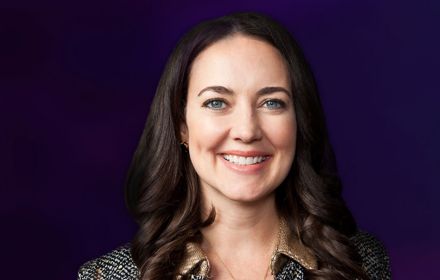As a fourth-generation business, we have successfully weathered two world wars, the great depression, social unrest and socio-political challenges. Throughout, our family’s social responsibilities have never wavered.
With the next-generation of family members now entering the business, multi-generational engagement is an important factor in making sure that Chamberlain’s values are transferred successfully, and that they permeate the way the company does business. This includes the company’s responsible trading actions and stable employment creation. “We never retrench. And in a country that has a 30 percent unemployment rate, providing and maintaining job opportunities is critically important,” says company director Catherine Chamberlain.
We’re in business to make money and our goal is to be profitable, but we’re committed to making socially responsible profits – not only for our family, but to make sure that we can continue to give back to our communities as well.
Three focus areas: Environment, education and the elderly
Chamberlain’s sponsorship of early-childhood development programs is one example of their social responsibility commitments. Employees learn how to engage with their children and support their learning, then access a bursary program to advance their education. There is also as special loan program for employees that need emergency financial support. Employees feel well cared for, which has proven to be beneficial to the business and employees alike.
As Catherine remarks, “Chamberlain is a desirable place to work. We retain our staff, they’re well trained and highly experienced. And because of that we‘re able to deliver consistently exceptional service and expertise that our customers know they can count on. In the highly competitive retail environment where customers have a lot of choice, the loyalty and expertise of employees is often the deciding difference.
“Our customers also recognize and appreciate the way we treat our employees and suppliers, and they see how active we are in their communities. So, while we may be small nationally, we’re big in our local regions, and I firmly believe that all those factors have contributed to both the financial and social success of our business.“
Institutionalizing ESG throughout the business
In terms of environmental issues, Chamberlain supported those and other societal and community concerns in the past through its family foundation.
“The environment has always been one of our three philanthropic focus areas, in addition to education and issues related to elderly citizens. However, in terms of our operating practices, environmental issues – such as packaging and recycling – weren’t really part of our business thinking in the past. That and many other issues are now changing how we operate. For example, we’re very focused on water recycling as water security is becoming an increasingly important and urgent concern in South Africa and other parts of the world.”
She explains how ESG-related issues have expanded beyond philanthropy and are being standardized in the business through the leadership of the CEO and the senior management team. Governance mechanisms such as the company’s social and ethics committee, the inclusion of civic-minded non-family members on the board who are passionate about addressing environmental and societal issues, and regular agenda items in each of the company’s operational areas are helping to embed an ESG mindset in the business.
Sharing a family heritage
“Our founding values are integrity, hard work and progress with caution. We read ‘integrity’ as doing the right thing as a responsible corporate citizen, and as you grow with each generation, you have to structure and formalize those values and institutionalize them throughout the business.
“It’s in our mission statement and embedded in the structure of various departments, so we address the issues that are emerging and what we’re doing about them at every monthly meeting. We’re very deliberate in our actions, and this is how we’re integrating social responsibility throughout the business.”
Chamberlain’s employees play an important role in this institutionalization as well. “We think of Chamberlain as our employees’ family businesses too,” she says. “We have multi-generational families who have been working with us for decades, and we continue to encourage and welcome their next-generation family members to join us.
“Our ability to impact our community is highly influenced by our employees and their families. The focus and support we provide to them is likely on a greater scale than in most other businesses, but I firmly believe that it’s because of that they continue to be our best and most steadfast ambassadors.”
Champions of social responsibility
Related content
The views and opinions [of external contributors] expressed herein are those of the interviewees and do not necessarily represent the views and opinions of KPMG International Limited or any KPMG member firm.
KPMG’s participation and contribution in this regard is not an endorsement, sponsorship or implied backing of any company’s products or services.









